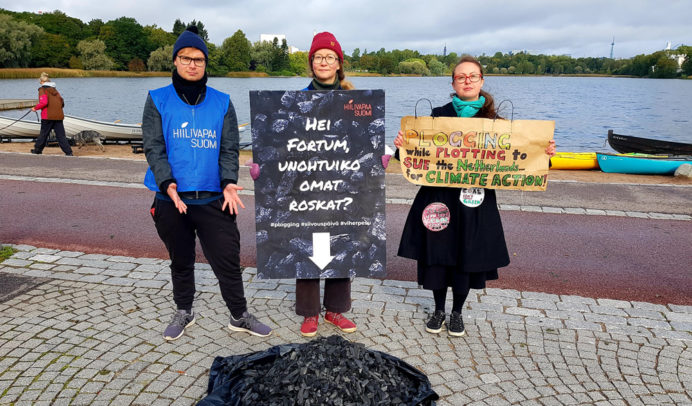Yesterday, Fortum announced that its shares in the heavily coal-dependent Uniper have risen from 49.99% to 70.5%. The Finnish state-owned company bought Uniper from E.ON. in 2018. The news mean that Uniper officially becomes Fortum’s subsidiary, and Fortum’s management obtains an unquestionable power over Uniper’s future direction.
According to Fortum’s press release, one of the cornerstones for the upcoming joint strategy is sustainability. Unfortunately, Fortum’s definition of sustainability is likely to fall into pitfalls that would undermine a European decarbonisation pathway consistent with limiting global temperature rise to 1.5 degree Celsius.
Fortum’s CEO, Pekka Lundmark, has repeatedly alluded to the possibility of selling Uniper’s coal fleet rather than closing the plants down. Worryingly, the situation greatly resembles that of Vattenfall in 2016 when the Swedish state-owned utility sold their coal plants and mines to the Czech billionaire Daniel Křetínský and the coal power utility EPH.
“Fortum’s whopping 70.5% ownership over Uniper must now result in the rapid closure of coal plants by 2030 – which is what climate science dictates. Instead, there is a real danger that Fortum will push Uniper’s coal fleet into the hands of predatory private equity firms, such as EPH or Sev.en Energy, whose sole intention appears to be to prolong the life of polluting activities.”, said Vera Kauppinen, campaign coordinator, Friends of the Earth Finland.
“We have seen several similar cases in Europe where the sold coal plants, which should have been closed immediately, have stayed in operation and released significant amounts of CO2. Fortum must now do the right thing and set a closure date on every single coal plant it owns, from Germany to Russia, without investing in another climate-damaging fossil fuel, natural gas, under the pretext that it is a bridging fuel’“, continued Kauppinen.
In the meanwhile, Uniper has announced that it is willing to pursue a first ever ISDS1 case against the Netherlands on the grounds of a fast coal phase-out. Fortum has avoided commenting directly on the subject, but in a recent interview with Taloussanomat, Pekka Lundmark indirectly supported the case referring to property protection. With its high share, Fortum could easily pressure Uniper to drop the case.
“The complaint itself, and Fortum’s quiet endorsement of it, is almost farcical. Both the Finnish and Dutch governments are part of the Powering Past Coal Alliance. Now Uniper, and by extension Fortum, is taking the Dutch government to court because it is closing coal plants to take action on climate change? This type of complaint is an intimidation tactic. How does that sit with the Finnish government to be Europe’s climate leader when its flagship company happily erodes the climate fight in other parts of Europe?”, said Kaarina Kolle, Europe Beyond Coal Finance Coordinator.
→Read the press release in Finnish
Contacts:
Kaarina Kolle, Europe Beyond Coal, Finance and Utility Coordinator, , +358505913072 (Finnish, English)
Vera Kauppinen, Friends of the Earth Finland, campaign coordinator, , +358445769999 (Finnish, English)
1 Investor-state dispute settlement (ISDS) is a mechanism included in many trade and investment agreements to settle disputes through arbitration.

